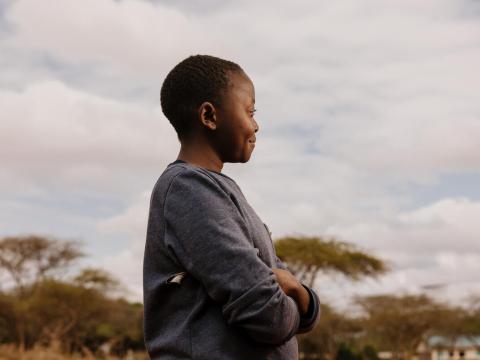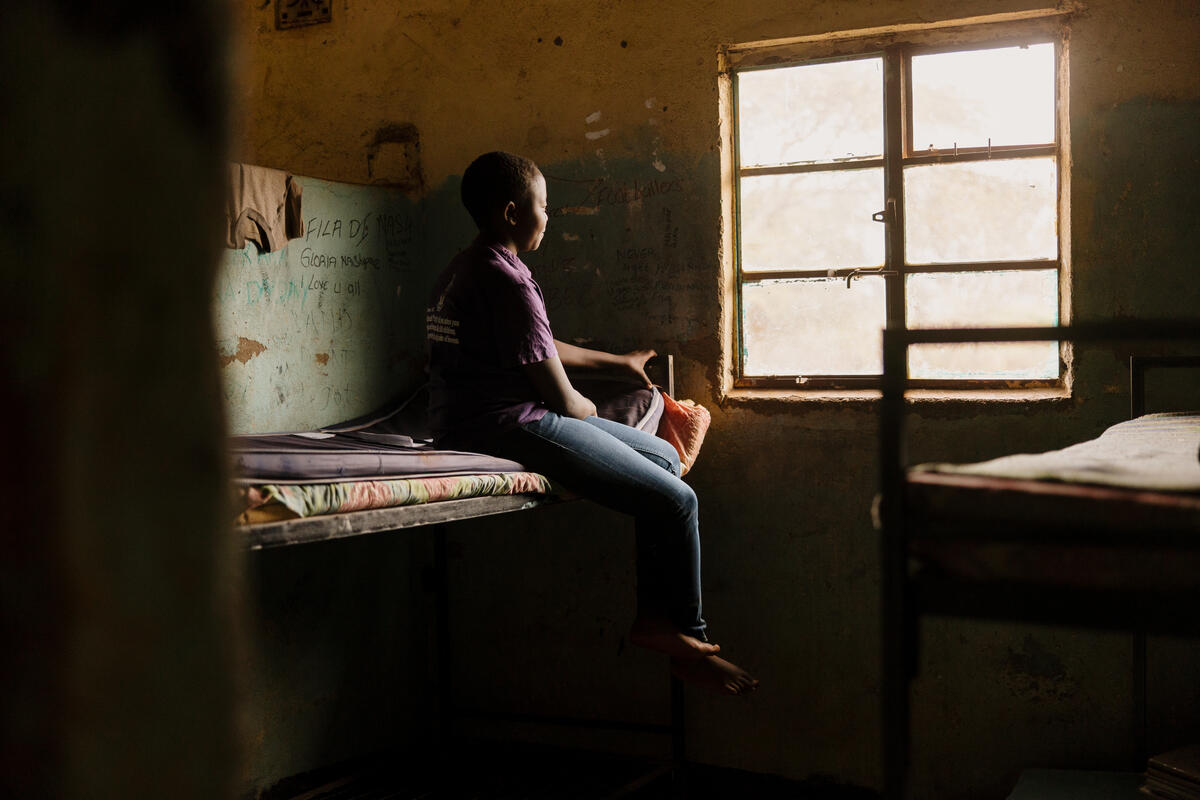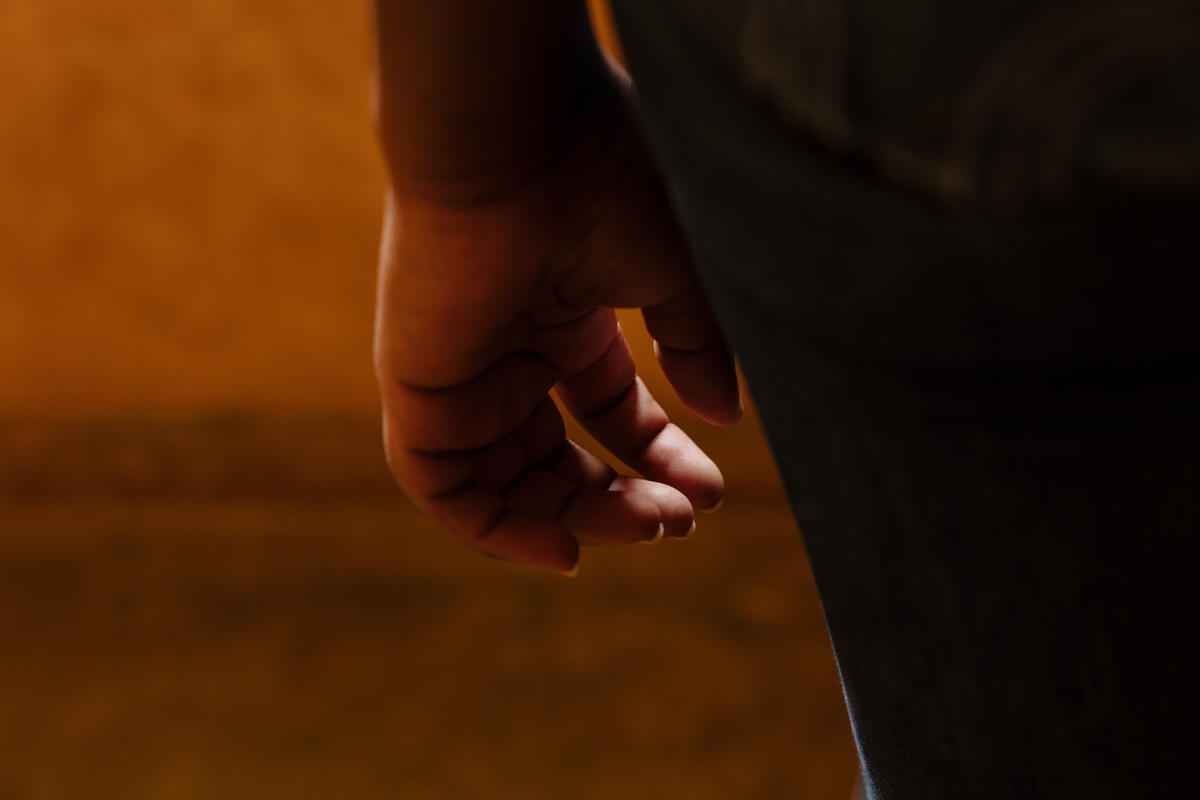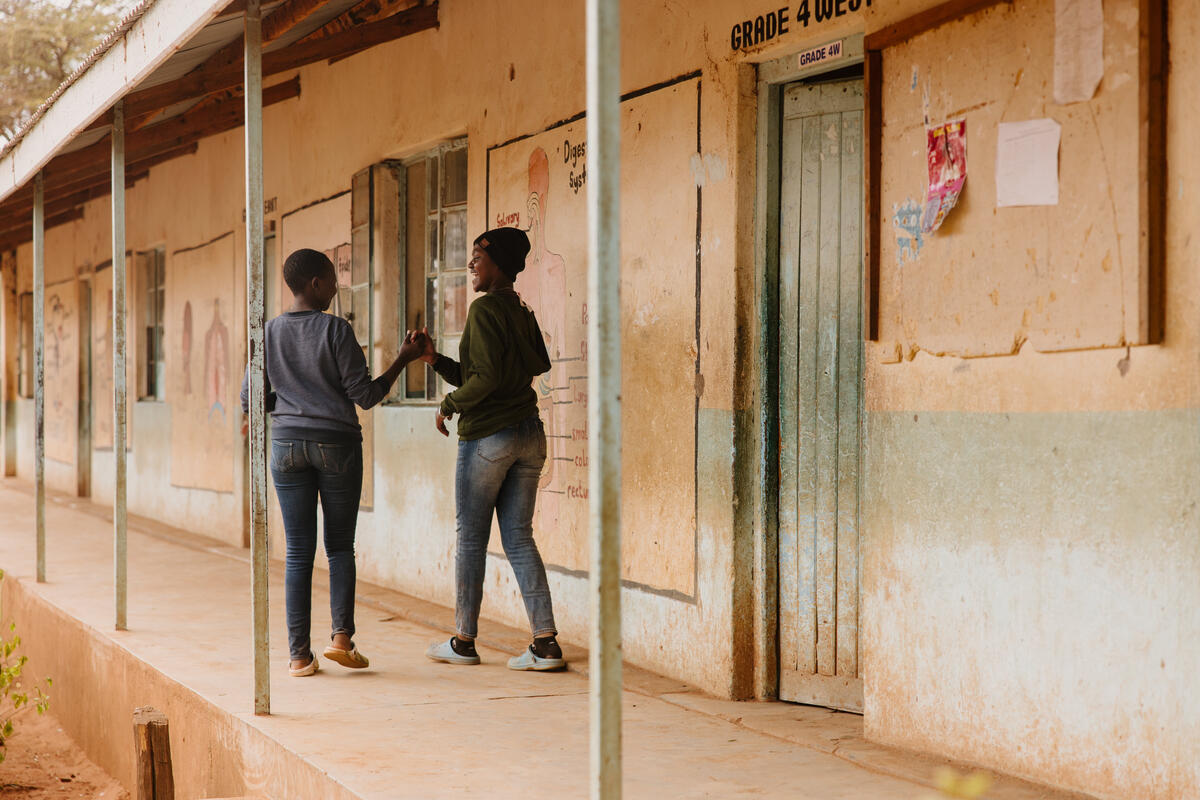Breaking free from abuse: Ruth's story

When Ruth* was 8 years old, she loved learning and playing with her friends. But her innocent childhood steeped in rich Maasai culture was suddenly cut short when a strange older man arrived at her house to marry her. At just 8, Ruth was expected to give up her childhood, leave her family to go with this man and start her new life as a wife.

Ruth grew up in a pastoralist family in the Osiligi area. It was often difficult for her family to get enough to eat, but she was happy as a child.
“In my young childhood, I always wanted to play as other kids and study. I always admired other girls ahead of me who were in Class 8. So, I always wanted to study and get to form one like them,” says Ruth, who is now 13.
The Maasai people uphold a proud tradition as nomadic pastoralists, navigating the borders of Uganda and Tanzania in pursuit of rain and pastures for their livestock. Yet, embedded within this rich culture lies a darker reality for some girls, who face the threat of harmful traditions. FGM, child marriage and teenage pregnancy have lifelong health implications and often trigger the end of a girl’s education, stifling her future opportunities and leaving her more vulnerable to exploitation and abuse.

“In my home area, girls don’t go to school… girls are married off by the age of 9 years old as the men anticipate having them married off so that they can get more cows and have more money from the dowries paid,” she explains. “This contributes to them being married off at an early age to go and help their husbands. While on the other side, boys are allowed to go to school.”
The community’s reliance on their livestock means the drought of the last three years which has seen the last six rainfalls fail has hit the community hard. Without grass, livestock has been lost and breeding has slowed, and fewer animals means less food and less income.
Ruth’s father was burdened by the struggle to provide for his family so made the difficult choice to arrange her marriage. This decision thrust Ruth into a nightmare.
Her mother cried, but said there was nothing she could do; it was her father’s decision. The man slept that night at their house, and the next morning she was told to get on the back of his motorbike and go with him to his home in a village.
“I was taken to a place I didn’t know,” remembers Ruth.
This marked the beginning of a harrowing two weeks, where Ruth cooked, collected water, herded cattle, and cried herself to sleep under her new family’s roof.
“I am not sure of his age but he was so old,” says Ruth.
A pivotal moment came when Ruth met another girl just like her who was experiencing a similar ordeal. United by their shared experience, they found a glimmer of hope in the form of a World Vision volunteer at the school, who was ready to listen and act.
Together, the two mustered up the courage to share their story with the volunteer in hopes of being able to escape the torture of being married.

World Vision helped the girls report their cases to the police, who intervened and placed the girls in a rescue centre.
Kenyan Rescue Centres are government-run establishments that provide shelter for at-risk girls like Ruth and her friend. But here they have found more than just shelter.
Supported by World Vision, Ruth has been provided with psychosocial and trauma recovery support and an education on their rights as children.
Five years have passed since Ruth entered the rescue centre. She says life there is good – the matron cares for them, and they have enough food and essentials like sanitary pads. Today, Ruth is studying as hard as she can to reach her dreams of building a home, like the one that saved her from her own marriage.
“When I grow up, I want to establish a rescue [centre] and be an accountant. “I would advise them to get girls to school, to stop FGM,” she says. “I would also tell them that both boys and girls should be given equal rights.”
At thirteen years old Ruth has never seen her family again, but was recently sponsored by someone through World Vision. With sponsorship, she receives ongoing consistent support and provisions to ensure she can stay in school and follow her dreams.
When asked about her sponsor though, Ruth doesn’t talk about the things she’s received. Instead, she says that since being sponsored, she knows that she is loved.
Imagine the change that would be possible if 1,000 girls like Ruth were sponsored. We urgently need sponsors for 1,000 by October 11th, International Day Of the Girl.